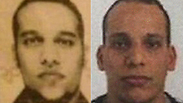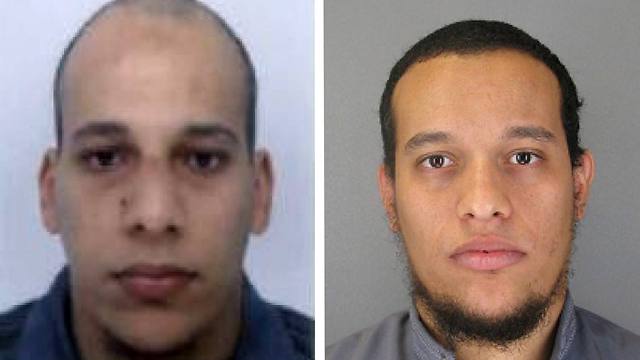
French anti-terrorist hotline challenges family ties
The French foreign ministry has set up a hotline which families can call to report a child having become a radicalized islamist; more than 2,200 youths have been reported thus far.
Seated at a table in the back of a bistro in Paris, this 75 year old woman testified of her decision to call the authorities.
"Nobody knows that I called, not even my husband," she explained. "My daughter, Lea's mother, said I don't understand anything, that I'm paranoid. I'm really the only one in this family doing what I think needs to be done."
That was a year ago, shortly after the hotline was launched by the French Interior Ministry specifically for families to report the suspected radicalization of their loved ones in late April 2014.

Since then, "more than 2,200 people were reported" via the hotline says Pierre N'Gahane, the Secretary General of the Inter-ministerial Committee for the Prevention of Delinquency (CIPD). "And If we add the data given by the prefectures (administrative centers), we get to 4500," according to figures for up to late May. "A real social need was expressed in the country."
"The hotline is very good. They asked me many questions about the family environment and lifestyle. They are very empathetic and reassuring," recalled Mary.
Once alerted, the Prefecture of her region got her in touch with a local association called Society, Family, Individual (SOFI), which specializes in the treatment of sectarian deviations.
Since the terrorist attacks in Paris in early January by radicalized French citizens, SOFI's President Michele Cherpillod and her team of volunteers look after about fifteen families. Once a month, they gather in a secret place "for their anonymity and security" and they share their experiences.
"One mother explained that one day her 15-year-old daughter refused to push her cart because there were liquor bottles inside," recounts Ms. Cherpillod.
To each person she gives the same piece of advice: "Always keep an emotional connection, a kind of unbreakable spider thread. One must ensure that Jihad is not the only way out for radicalized individuals."
Friends, veiled just like her
The conversion of 23-year-old Lea goes back to 2013. It all began, according to her grandmother, with a heartbreak: "Her boyfriend left her for another girl and she went crazy. At that point she told me that 'I can't stand men looking at me'. She resigned from her job as a cashier, which she started after dropping out of school, 'to be a housewife.'"
That was the end of "going out, alcohol, and the cannabis" that she cultivated on her balcony, Mary recalled with amusement, recalling their tight bond in the past. "We exchanged our clothes, did our shopping together." Today, they still see each other once a week but "the relationship is much colder."
The clothes she offers her "end up in the trash," as do the books and the posters of "bodybuilder men" that used to line the walls of her room, where she now only invites those whom she calls "friends veiled just like her."
Also finished were the secrets regarding "her many romantic adventures." Léa now prefers pouring out her "hatred of Jews", expounding on the "conspiracy" of the attacks of September 11th, sympathizing with former Libyan dictator Muammar Gaddafi, "the poor man," doubting "the death of bin Laden" and castigating "the media's propaganda" about the atrocities committed by the Islamic State in Syria and Iraq.
She met her fiancee at a mosque in Villiers-sur-Marne in the Paris suburbs, "known for its violent sermons," said a police source. A criminal investigation into a group sending jihadists to Syria, dismantled in November 2013, centered on this very mosque.
French authorities estimate that about 500 youths left for the Syrian-Iraqi zone, of whom at least 119 have died there and that on French territory nearly 2,000 people are affected by this phenomenon of radicalization.
Mary admits to having "feared that Lea would leave" for Syria. Although her fears have been somewhat allayed, she still needs reassurance: "I have done everything I had to do so that she will not leave."










